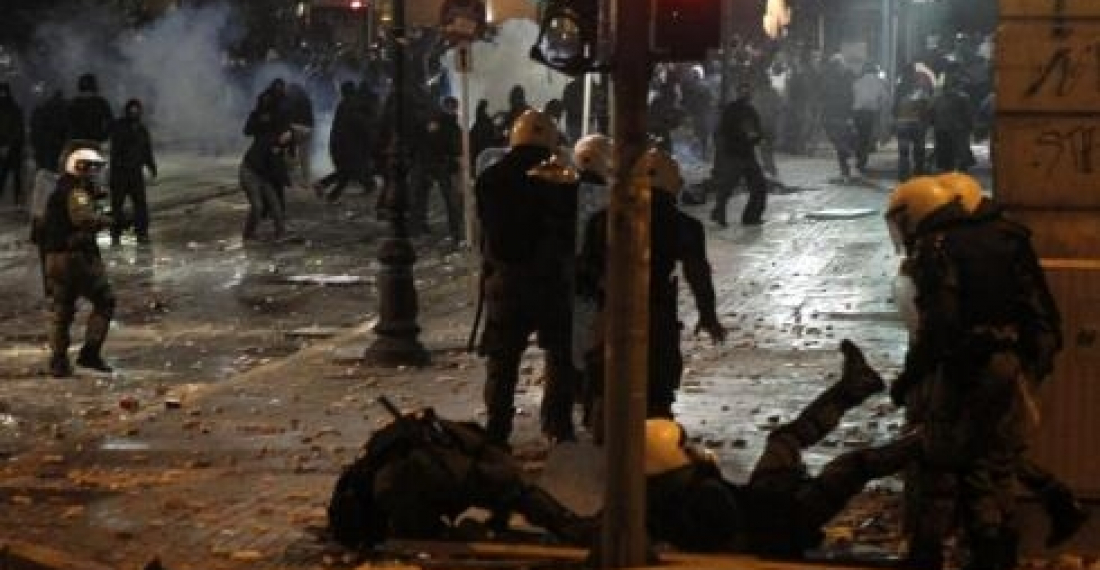Greek MPs have approved a controversial package of austerity measures, demanded by the eurozone and IMF in return for a 130bn euro bailout.
The vote was carried by 199 in favour to 74 against. Coalition parties expelled more than 40 deputies for failing to back the bill.
Tens of thousands protested in Athens, where there were widespread clashes and buildings were set on fire. Violent protests were reported in cities across the country.
Protesters outside parliament threw stones and petrol bombs, and police responded with tear gas. Scores of police and protesters were injured.
Prime Minister Lucas Papademos urged calm, insisting that the austerity package would "set the foundations for the reform and recovery of the economy".
The turmoil in Athens was a somewhat inauspicious setting for Bako Sahakyan, the President of the self declared Nagorno-Karabakh Republic who is currently on a visit to Greece.
Sahakyan spent Sunday meeting leaders of the Armenian community in Greece. He also attended Holy Mass, at the St. Mary Church, which was celebrated by Primate of the Artsakh Diocese of the Armenian Apostolic Church, Archbishop Pargev Martirosyan.
source:commonspace.eu with BBC and news.am
photo: Riot police clash with demonstrators outside the Greek parliament







